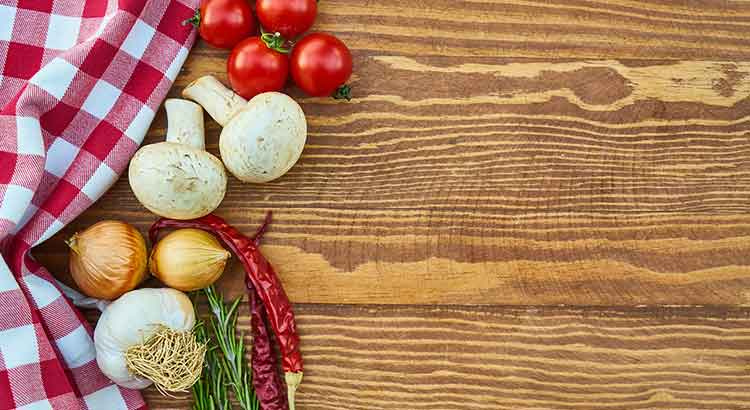Do you ever find yourself debating whether to cook peppers before topping your pizza?
Peppers can be added to pizza both raw and cooked. While raw peppers provide a crisp and fresh crunch, cooking them beforehand can enhance their flavor and texture, making for a delicious pizza topping.
Is your pizza missing that perfect pepper pop? Wondering how to take your pizza game to the next level? From the art of toppings and the battle of sauces to the influence of ovens, we’ll uncover the secrets that make each slice unique. Discover the ultimate pepper pizza hack that will have your taste buds singing with delight.
Step-by-Step Beginners Guide
Choose Your Fruit Juice
When it comes to sweetening your baked goods with fruit juice, the first step is selecting the right juice. You’ll want to choose a juice that complements the flavors of your recipe. For example, orange juice works well in citrus-flavored desserts, while apple juice is versatile and can be used in a variety of recipes. Keep in mind that the sweetness of the juice will vary, so taste it beforehand and adjust the quantity accordingly.
Reduce the Juice
To use fruit juice as a sweetener effectively, you’ll need to reduce it to concentrate its flavor and sweetness. In a saucepan, gently simmer the juice over low heat until it thickens and reduces by about half. This process intensifies the natural sugars and enhances the fruit flavor. Be patient, as reducing juice can take some time. Once it has thickened, let it cool before adding it to your baking recipe.
Adjust Your Recipe
Now that you have your concentrated fruit juice, you can incorporate it into your baking recipe. Keep in mind that the reduced juice will add both sweetness and moisture to your dish. To maintain the right balance, you may need to adjust the other ingredients, such as sugar and liquids, in your recipe. Experimentation may be necessary to achieve the desired taste and texture. Start by substituting a portion of the sugar with the reduced juice and gradually increase it until you reach your preferred level of sweetness.
Monitor Baking Times
When using fruit juice as a sweetener, be mindful of your baking times. The extra moisture from the juice can affect the texture of your baked goods. Keep an eye on your treats in the oven, as they may need slightly less time to bake. Use a toothpick or cake tester to check for doneness. Remember that the baking process can vary depending on the type of juice and the recipe you’re working with, so don’t be discouraged if it takes a bit of trial and error to get it just right.
Enjoy Your Healthier Treats
Using fruit juice as a sweetener in baking can be a nutritious and flavorful choice. You’re not only adding natural sweetness but also the vitamins and antioxidants present in the fruit. Plus, it can be a great option for those looking to reduce their refined sugar intake. So, next time you’re whipping up a batch of muffins, cookies, or a fruity cake, consider giving fruit juice a try as your secret sweetening ingredient. Your taste buds and your health may thank you for it.
Additional Tips
Mix and Match
Don’t hesitate to mix different fruit juices for unique flavor combinations. For instance, try blending orange and pineapple juice for a tropical twist or combining apple and cranberry juice for a fall-inspired treat. Experimentation can lead to delightful surprises in your baking creations.
Account for Acidity
Keep in mind that fruit juices can vary in acidity. Citrus juices like lemon and lime are highly acidic, which can affect the leavening agents in your recipes. To balance this, consider reducing the amount of other acidic ingredients like vinegar or yogurt, or use baking soda instead of baking powder to maintain the right pH level.
Balance with Sweeteners
While fruit juice can add sweetness, you might want to balance it with other sweeteners. For instance, combining reduced fruit juice with a touch of honey or maple syrup can provide a more complex and well-rounded sweetness profile. Adjust these additional sweeteners according to your taste preferences.
Freeze for Future Use
If you find yourself with leftover reduced fruit juice, don’t let it go to waste. Freeze it in ice cube trays for convenient future use. These fruit juice cubes can be added directly to smoothies, sauces, or even as a sweetener in iced tea. It’s a simple way to have a burst of fruity flavor at your fingertips.
Consider Natural Pectin
Fruit juices, especially those from fruits like apples and citrus, contain natural pectin. Pectin can help thicken and set certain desserts, like jams and jellies. If your recipe requires a gelling agent, consider using fruit juice in combination with other ingredients to achieve the desired consistency.
Adjust for Freshness
Using fresh, high-quality fruit juice can make a significant difference in the flavor of your baked goods. Whenever possible, opt for freshly squeezed juice or 100% pure juice without added sugars or preservatives. The natural essence of fresh juice can elevate your recipes to a whole new level.
Don’t Overdo It
While fruit juice can enhance the flavor of your baked goods, remember that moderation is key. Too much juice can overpower the other flavors in your recipe and affect the texture negatively. Start with small amounts and gradually increase until you achieve the right balance.
Final Thoughts
Baking with fruit juice as a sweetener is a journey that can lead to scrumptious results. It offers a healthier twist to traditional recipes and allows you to savor the natural flavors of fruits. Throughout this guide, we’ve explored the steps to make it work for you, from selecting the right juice to adjusting your recipes. But as we wrap up, let’s reflect on the broader implications of this culinary choice.
In a world where health-conscious choices are gaining momentum, using fruit juice as a sweetener aligns well with the quest for better eating habits. It’s a simple way to reduce the reliance on refined sugars while adding a burst of natural goodness to your baked treats. By experimenting with different juices and combinations, you can create desserts that not only tantalize your taste buds but also nourish your body with vitamins and antioxidants.
Moreover, the versatility of fruit juice as a sweetener extends beyond the realm of baking. It can find its way into your morning smoothies, homemade sauces, and refreshing beverages. This ingredient invites you to think creatively in the kitchen, blending flavors and textures to craft dishes that reflect your personal taste. So, whether you’re a seasoned baker or a newbie in the world of cooking, don’t hesitate to embrace the sweetness of fruit juice as a delightful culinary companion. It’s a small change that can lead to big flavor enhancements in your culinary repertoire.
FAQ
Q: Can I use any fruit juice in baking?
A: While many fruit juices can work in baking, it’s essential to consider the flavor and sweetness of the juice in relation to your recipe. Citrus juices like lemon and lime can provide a zesty kick, while milder juices like apple or pear are more versatile. Taste the juice beforehand to gauge its sweetness and acidity, and choose accordingly.
Q: How do I know the right amount of reduced fruit juice to use in my recipe?
A: Finding the perfect balance can take a bit of trial and error. Start by substituting a portion of the sugar with reduced juice and gradually increase it until you achieve the desired sweetness. Keep in mind that some recipes may require a bit of additional tweaking in terms of other ingredients like flour and liquids to maintain the right texture.
Q: Can I substitute fruit juice for sugar in any recipe?
A: While fruit juice can replace sugar in many recipes, it may not work well in all of them. Recipes that rely on sugar for texture, like cookies, may not yield the same results. Also, note that the reduced juice adds moisture, so adjustments may be needed in terms of other wet ingredients in your recipe.
Q: Are there any fruit juices to avoid in baking?
A: Generally, you can experiment with various fruit juices, but be cautious with highly concentrated or tart juices, as they can overpower the flavor of your baked goods. Additionally, juices with added sugars or preservatives may not be ideal for those looking for a healthier alternative.
Q: Can I use fruit juice as a sweetener in savory dishes?
A: Yes, you can! Fruit juice can add a unique dimension of sweetness to savory dishes like marinades, sauces, and glazes. It pairs particularly well with meats like chicken and pork. Just like in baking, be mindful of the acidity and adjust other ingredients accordingly.
Q: Can I use fruit juice to sweeten beverages and cocktails?
A: Absolutely! Fruit juice can be an excellent natural sweetener for homemade beverages and cocktails. Whether you’re making lemonade, iced tea, or a refreshing cocktail, reduced fruit juice can provide a fruity and flavorful touch.
Q: Are there any alternatives to fruit juice as a sweetener in baking?
A: Yes, several alternatives can be used to sweeten your baked goods, including honey, maple syrup, agave nectar, and coconut sugar. Each of these options brings its unique flavor and sweetness profile, allowing you to experiment and customize your recipes.
Q: Can I use fruit juice in gluten-free or vegan baking?
A: Fruit juice can be a suitable sweetener for both gluten-free and vegan baking. However, you may need to make additional adjustments to account for the specific requirements of these dietary preferences, such as using gluten-free flours or egg substitutes.
Q: How long can I store reduced fruit juice for future use?
A: You can store reduced fruit juice in an airtight container in the refrigerator for up to a week. To prolong its shelf life, consider freezing it in ice cube trays and transferring the cubes to a freezer bag. This way, you can have concentrated fruit juice ready for future culinary adventures.
Q: What are the health benefits of using fruit juice as a sweetener?
A: Using fruit juice as a sweetener can provide some health benefits, as it introduces natural fruit flavors and antioxidants into your recipes. It also reduces the reliance on refined sugars, which can be a step towards healthier eating habits. However, moderation is key, as fruit juice still contains natural sugars.
As you embark on your culinary journey with fruit juice as a sweetener, these FAQs should help address some common queries and concerns. Remember that experimenting in the kitchen is part of the fun, so don’t be afraid to get creative and enjoy the delicious results of your fruity baking adventures. Happy baking!

